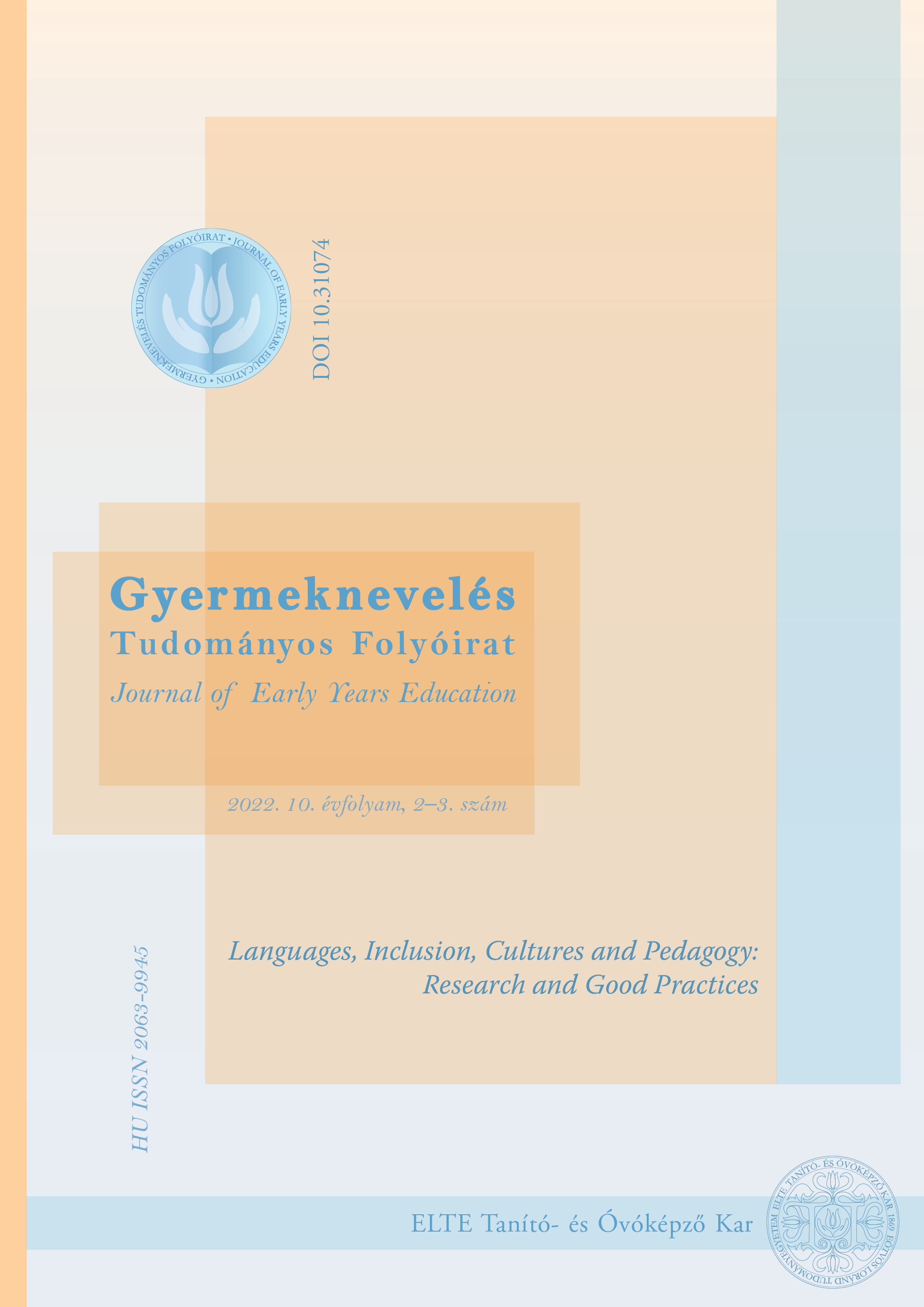Project-based language learning through folk and fairy tales:
The story of a tale project before and during the pandemic
DOI:
https://doi.org/10.31074/gyntf.2022.2.268.278Keywords:
intercultural dialogue, folktale traditions, project-based learning, storytelling, early foreign language developmentAbstract
Project-based learning is one of the most effective ways to help students acquire the four key competencies of twenty-first-century education: creativity, critical thinking, effective communication, and collaboration. Launched by Apor Vilmos Catholic College in 2015 in cooperation with the University of Winchester, The Tale Project is based on a ‘four Cs’ foundation. The project method inspires our students’ creativity and develops their critical thinking, problem-solving, and decision-making skills while encouraging them to learn and work effectively as part of a group. Developing foreign language competencies, pedagogical, and art competencies also belongs to the emphasised objectives for cooperation between the two institutions. The project covers the content area of Intercultural Dialogue through Folktale Traditions, and in each academic year, English and Hungarian students work on different stories and tale- cycles. The 2019/20 academic year was a turning point in the history of the project. Since the Covid-19 lockdown in March, 2020, we have been obliged to explore and apply the new innovative methods offered by online education, virtual exchange, and alternative ways of communication.
Downloads
References
Bender, W. N. (2012). Project-Based Learning: Differentiating Instruction for the 21st Century. Corwin Press.
Bettelheim,, B. (1989). The Uses of Enchantment. The Meaning and Importance of Fairy Tales. Alfred A. Knopf, Inc.
Boldizsár, I. (2015). Meseterápia: Mesék a gyógyításban és a mindennapokban. Magvető.
Congregation for Catholic Education (2013). Educating to Intercultural Dialogue in Catholic Schools Living in Harmony for a Civilization of Love. Vatican City. http://www.vatican.va/roman_curia/congregations/ccatheduc/documents/rc_con_ccatheduc_doc_20131028_dialogo-interculturale_en.html.
Ellinger, E. (2017). Subjective object: Analysing the functional object theatre and the creative workflow of The Knot Fairy,, PhD thesis. Színház- és Filmművészeti Egyetem.
Moebius, W. (1986). Introduction to Picturebook Codes. Word and Image, 2(2), 141–158. https://doi.org/10.1080/02666286.1986.10435598
Phillips, S. (2010). Drama With Children. Oxford University Press.
Roche, M. (2015). Developing children’s critical thinking through picturebooks: a guide for primary and early years students and teachers. Routledge. https://doi.org/10.4324/9781315760605
Rofusz, K. (2018). Otthon. Vivandra Könyvek.
Streitmann, A. & Székely, A. (2019). Traditional and Digital Storytelling Techniques in Early Foreign Language Teaching. Journal of the Comenius Association, 28, 20–22.
Streitmann, A., Rooke, J. & Székely, A. (2021). Pandemic Tale Project: Developing the 4 Cs through Tales, Drama, and Picture Books. Journal of the Comenius Association, 29, 7–10. https://www.associationcomenius.org/IMG/pdf/Comenius_journal_2021-2.pdf
Teverson, A. (2013). Fairy Tale. Routledge. https://doi.org/10.4324/978020336103
Van Gennep, A. (1999). The Rites of Passage. In Dundes, A. (Ed.), International Folkloristics: Classic Contributions by the Founders of Folklore (pp. 99–108). Rowman & Littlefield Publishers Inc..
Zipes, J. (2001). Cross-Cultural Connections and the Contamination of the Classical Fairy Tale. In Zipes, J. (Ed.), The Great Fairy Tale Tradition: From Straparola and Basile to the Brothers Grimm (pp. 845–869). W. W. Norton and Company.
Additional Files
Published
How to Cite
Issue
Section
License
Copyright (c) 2022 Author

This work is licensed under a Creative Commons Attribution-NonCommercial-ShareAlike 4.0 International License.

